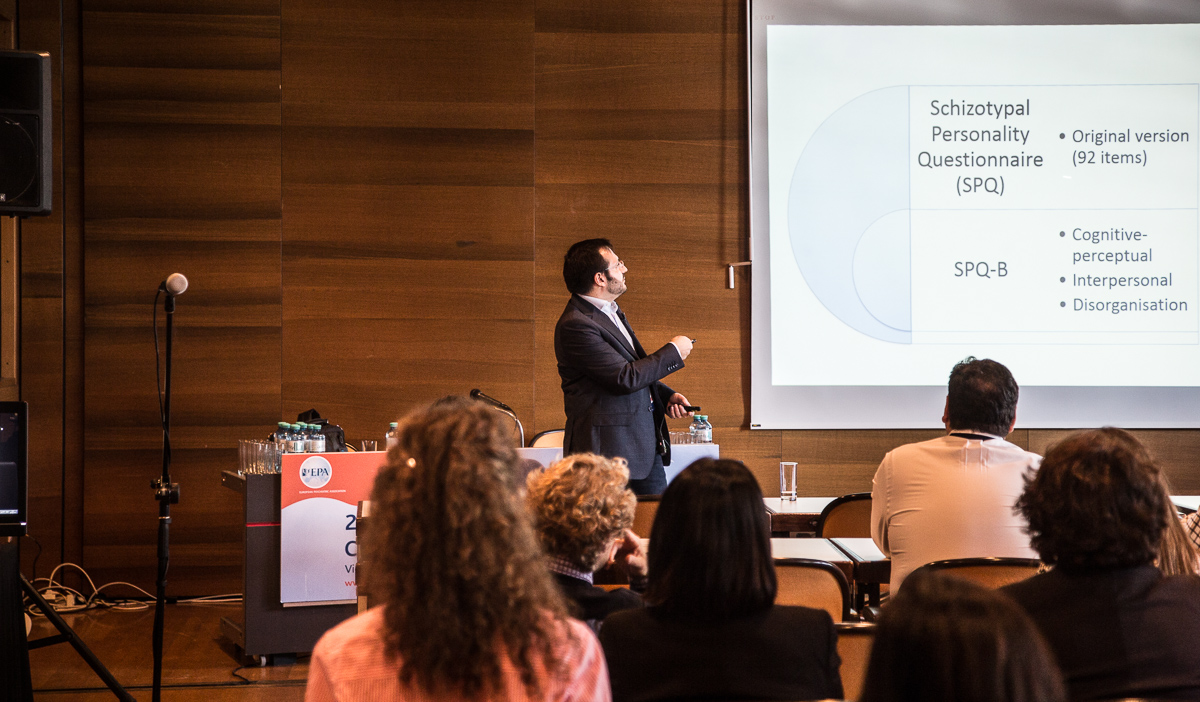
At that awkward stage - Report from an EPA Pro and Con Debate
A stimulating afternoon debate at the EPA therefore presented some of the arguments for and against developing a staging model for major psychiatric disorders.
‘I cannot say whether things will get better if we change, what I can say is they must change if they are to get better.’
Georg Christoph Lichtenberg
The idea of staging of psychiatric disorders has been around for many years, said Prof Marion Leboyer of Paris, France, the Chair of this session. Arguably it was contained in Kraepelin’s original descriptions of Dementia praecox and the group of schizophrenias, so the concept has been discussed in psychiatry for a century. However, she pointed out, it has been actively debated for the last 10 years, driven by research and opinion from Australia and Brazil. This stimulating afternoon debate at the EPA therefore presented some of the arguments for and against developing a staging model for major psychiatric disorders.
What are you, a zero or a four?
A staged model of major psychiatric disease, as explained by Dr Seetal Dodd of Melbourne, Australia, aims to provide a framework for treatment decision-making. He described the model originally suggested in Australia, which is designed to be applied to major psychiatric disorders, independent of diagnosis. This model, in line with the staging used in cancer diagnosis and treatment, has five main clinical stages from 0, where a patient has risk for disease but no signs and symptoms, through stage 1 which represents the prodrome, stage 2 first disease episode, stage 3 relapses, to stage 4, which is severe, persistent, unremitting illness.
Dr Dodd argued that this staging was particularly applicable to psychiatric diseases because they show evidence of neuroprogression, possibly driven by a biological mechanism such as inflammation, oxidative or nitrosative stress. Neuroimaging, he stated, points to neuroprogressive changes in some disorders, as does the worsening clinical course shown by many patients. He proposed that if a staging model were applied to conditions such as schizophrenia, some of the clinical focus would switch from managing relapses to neuroprotective strategies. These might be pharmacological, but also lifestyle interventions to reduce stress on the body and boost resilience may also be effective.
Turning healthcare on its head
If disease staging is to be clinically useful, it should have a role in guiding treatment decision-making and even in the provision of services, said Dr Dodd. The idea of treating early, in an attempt to delay or even prevent disease progression is now commonplace. Focussing on managing psychiatric disease at even earlier stages (when individuals are at risk or show mild signs of a prodrome) will place a challenge on much existing mental-healthcare provision. At present, patients must often have relatively severe symptoms before they can access expert provision, whereas in this model mild symptoms may represent a key opportunity for disease intervention.
Can I be sure I’m sane in an insane place?
The limitations of the staging model were elaborated by Dr Philippe Conus of Lausanne, Switzerland. Staging has been successfully applied in other areas of medicine, most obviously in cancer, where phases in the development of the disease can be mapped on to its pathophysiology, to guide treatment and to inform prognosis. However, he argued, this is not currently possible for psychiatric diseases.
One key issue is that diagnosis of these disorders is still based solely on clinical interview, and is not linked to any clear underlying pathophysiology.
Moreover, there are still many unclear boundaries and ambiguity in diagnosis, particularly when patients first present, so initial diagnosis itself may not be predictive of disease course or prognosis. In addition, Dr Conus pointed out, diseases that show progression may not be treated differently at different phases (a severe lung infection will progress, but still require antimicrobial treatment regardless of when it is diagnosed). Likewise, with the currently available evidence, different treatments are unlikely to be used at different stages of psychiatric disorders so staging will have no effect in guiding therapy.
Look both ways before crossing the Rubicon
Without evidence-based biomarkers of disease stage, or with insufficient clinical exactitude in diagnosis and identifying stages, Dr Conus proposed, staging models will not be robust. He therefore advised that we pause in our attempts to apply staging, in order to gather more information. We need to understand concepts such as the disease prodrome more clearly, and attempt to bridge the gap between clinical information and neurobiology to give us a better appreciation of pathophysiology. In this way, we may be able to build meaningful staging models that inform management and predict outcomes.
He closed with a quote from Mark Twain:
‘The secret of getting ahead is getting started. The secret of getting started is breaking your complex overwhelming tasks into small manageable tasks, and starting on the first one.’
Our correspondent’s highlights from the symposium are meant as a fair representation of the scientific content presented


